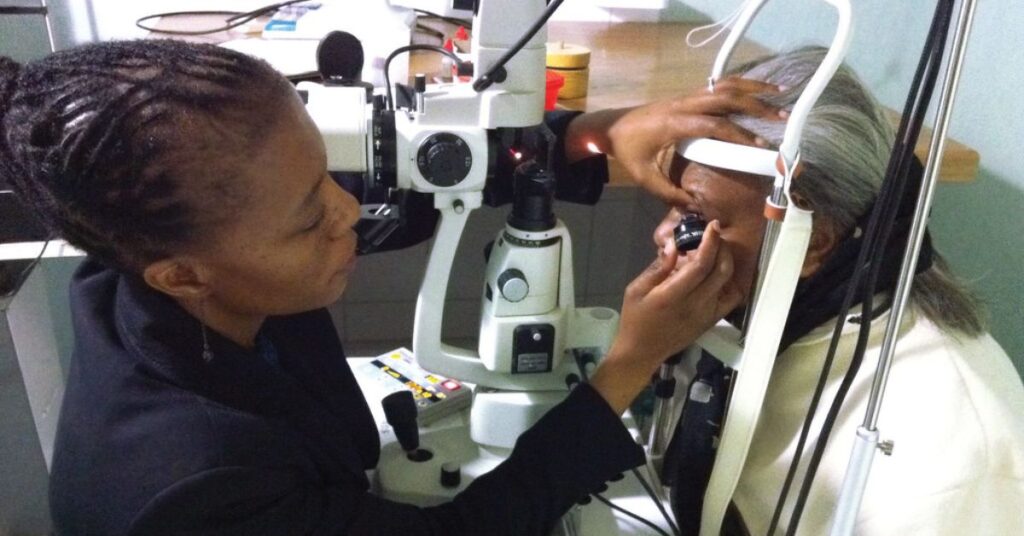For individuals with diabetes, managing blood sugar is only part of the equation. Regular eye examinations are equally critical to maintaining overall health. Diabetes can silently affect the eyes, causing complications that may not show symptoms until significant damage has occurred. Regular check-ups help catch these issues early, preventing permanent vision loss. Whether you’re newly diagnosed or have lived with diabetes for years, understanding the importance of routine eye care can make a big difference in your quality of life.
Diabetic Retinopathy: A Silent Threat
Diabetic retinopathy is one of the most serious eye complications caused by diabetes. High blood sugar levels damage the small blood vessels in the retina, leading to bleeding, swelling, or even retinal detachment. Early stages often have no symptoms, which is why only a professional eye exam can detect it before vision loss begins.
Early Detection Prevents Vision Loss
Regular eye exams help catch diabetic eye diseases in their earliest stages. When detected early, treatments like laser therapy, medication injections, or surgery can stop the progression and preserve vision. Without regular exams, damage may go unnoticed until it’s too late to reverse.
Monitoring Changes Over Time
Even if your eyes seem healthy, diabetes can slowly affect them. Routine eye exams provide a record of changes and allow your eye doctor to track the progression of any issues. This helps with timely interventions and adjustments in diabetes management if needed.
Identifying Other Eye Conditions
Diabetics are also at higher risk for cataracts and glaucoma. A comprehensive eye exam can detect these conditions early. Glaucoma, in particular, can cause vision loss without symptoms, making regular testing essential for prevention.
Protecting Long-Term Eye Health
Routine eye exams aren’t just for treating current problems—they also help protect your vision for the future. Annual visits allow your eye specialist to recommend personalized care, such as dietary advice, lifestyle changes, or better glucose control, all of which support eye health.
Visual Clarity and Daily Life
Even minor vision issues can affect your ability to read, drive, or work. Regular exams ensure your prescription is up to date, helping you maintain independence and comfort in daily activities. It also reduces the risk of accidents or injuries caused by poor eyesight.
Recommended Frequency of Eye Exams
Experts recommend that diabetics have a comprehensive eye exam at least once a year. If you already have eye complications, your doctor may advise more frequent check-ups. Early action leads to better outcomes and protects your sight for the long term.
Conclusion
For diabetics, regular eye examinations are not optional—they’re a vital part of health care. These exams help detect diabetic retinopathy and other conditions early, before serious damage occurs. They also support good vision and overall well-being. If you have diabetes, don’t wait for symptoms. Schedule a yearly eye exam and take control of your eye health before it’s too late.

